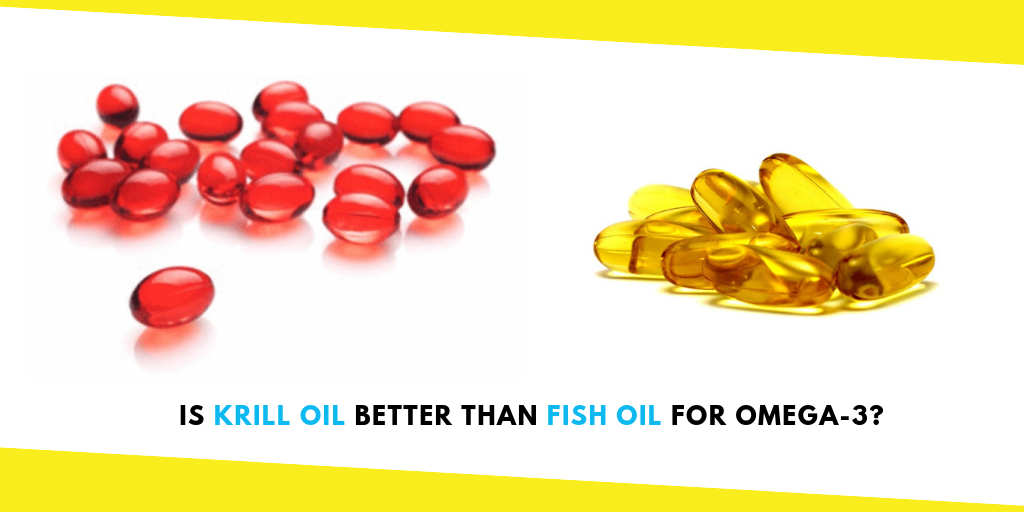Is Krill Oil Better Than Fish Oil For Omega-3?

Though the health advantages of omega-3 fish oil have gained extensive popularity, a newer health supplement has entered the market. Krill oil Canada is extracted from tiny crustaceans. It is naturally filled with healthy omega-3 fatty acids.
Fish oil and krill oil are the two sources of healthy omega-3 including EPA and DHA. While both the oils provide health benefits, there are differences in their benefits, price, and origin.
Contents
ToggleFish oil vs. Krill oil- How do you choose?
Derived from fatty fish such as anchovies, herring, tuna, mackerel, or salmon, omega-3 fish oil has become extremely popular dietary supplements high in eicosapentaenoic acid (EPA) and docosahexaenoic acid (DHA).
Food will never cure you of certain diseases and conditions but there are certain compounds like minerals, vitamins, anti-inflammatories, and antioxidants that really do have potent effects. Some of the most potent compounds are found in fish and krill oil, making both the supplements a wise addition to your immune system boosting plan.
Both krill oil and fish oil omega-3 dietary supplements have a range of health benefits that include:
- Reducing cholesterol levels
- Lowering blood triglyceride levels
- Decreasing the risk of cardiovascular diseases
- Reducing the risk of stroke
- Easing the symptoms of arthritis
- Relieving the symptoms of anxiety and depression
- Helping protect against Alzheimer’s disease
- And reducing inflammation
Fish Oil vs. Krill Oil – Which Omega-3 Supplement is Better?
Without proper research, it is not easy to decide which omega-3 supplement is better for your health. Is it the fish oil that will do wonders for your health or is it krill oil after all?
As said, both krill oil and fish oil contain DHA and EPA omega-3 fatty acids, however, there are some factors that can help you differentiate between the two types of omega-3 supplements. Here are some of the major differences that can help you decide which dietary supplement to consider.
Color:
Let us start with the color. To be honest, there are no potential benefits associated with the omega-3 supplement. Fish oil typically has a yellowish color, whereas krill oil has a reddish shade due to the presence of an antioxidant called astaxanthin. Well, you can’t decide on the color, both the oils have their respective colors due to certain components present in them. So color isn’t the deciding factor.
Absorption Rate:
This is where things start. According to some studies, it was found out that the human body is better able to absorb krill easily as compared to fish oil. Research shows that individuals who took krill oil omega-3 fatty acids had higher blood concentration of both EPA and DHA fatty acids after three days than those who took omega-3 fish oil. This means that our digestive system easily metabolizes the components present in krill oil than fish oil. Simply putting, you might find digesting fish oil a bit difficult and those whose metabolism is on the slower side, the effect may not be as potent as thought.
So in this case, krill oil wins because it is easy to absorb.
Antioxidants:
Undeniably, the omega-3 fatty acids present in fish oil are extremely beneficial for human health. However, krill oil is packed with antioxidants that can combat free radicals and lower inflammation. Free radicals, if not removed from the body, can develop cancer-causing cells. Astaxanthin is an antioxidant found high in numbers in krill oil. It can help reduce free radicals in the body and is popular for fending off migraine attacks.
So in this case as well, krill oil wins due to the effect of antioxidants.
Taste:
Fish oil is known for producing a distinctive fishy odor and aftertaste that most people don’t enjoy. But the highest quality fish oils that are freshly harvested don’t product noticeable taste. As compared to fish oil, krill oil do produce a certain taste but it doesn’t produce that pungent fishy odor, making it easier to consume.
In terms of taste, krill oil is better tasting as compared to omega-3 fish oil.
Price:
Fish oil is easily accessible through common fishes like salmon and tuna. With certain breeding programs, these fishes are bred in millions, so there is no scarcity of the resources. This makes fish oil cheaper.
Krill oil, on the other hand, is extracted from tiny crustaceans, small shrimp-like creatures feasted by whales, in particular. They are not easily accessible and harvesting krill oil from them is an expensive affair.
The major reason for the price variations lies in the way these supplements are made. Krill oil is expensive; however, if you are looking for discounts, Krill Oil Canada can provide you with pocket-friendly deals.
Final Words
Both the supplements are effective given that you are using a reputable brand. Nevertheless, if you are willing to spend a few extra bucks on your health, go with krill oil.
Most Inside
Most Inside offers high-quality recommendations and valuable updates to enhance all aspects of your life, providing premium guidance and enriching experiences.




